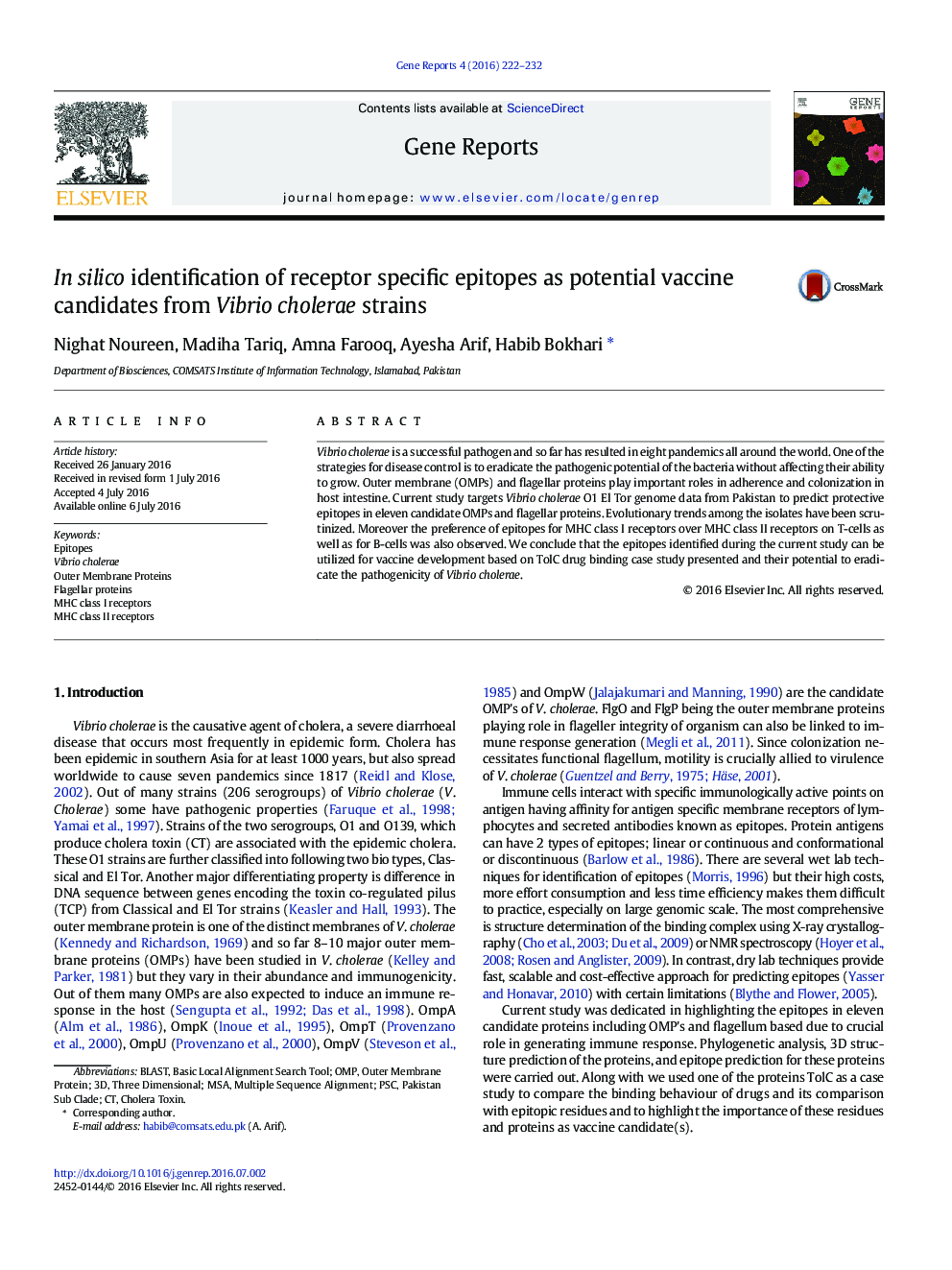| Article ID | Journal | Published Year | Pages | File Type |
|---|---|---|---|---|
| 2820505 | Gene Reports | 2016 | 11 Pages |
•Eradication of pathogenic potential of bacteria.•Adherence and colonization in host intestine in Vibrio cholerae.•Epitopic residues in OMPs and flagellar proteins in Vibrio cholerae.•Epitopic residue binding preferences.•Comparison of epitopic residues and drug binding cavities.
Vibrio cholerae is a successful pathogen and so far has resulted in eight pandemics all around the world. One of the strategies for disease control is to eradicate the pathogenic potential of the bacteria without affecting their ability to grow. Outer membrane (OMPs) and flagellar proteins play important roles in adherence and colonization in host intestine. Current study targets Vibrio cholerae O1 El Tor genome data from Pakistan to predict protective epitopes in eleven candidate OMPs and flagellar proteins. Evolutionary trends among the isolates have been scrutinized. Moreover the preference of epitopes for MHC class I receptors over MHC class II receptors on T-cells as well as for B-cells was also observed. We conclude that the epitopes identified during the current study can be utilized for vaccine development based on TolC drug binding case study presented and their potential to eradicate the pathogenicity of Vibrio cholerae.
